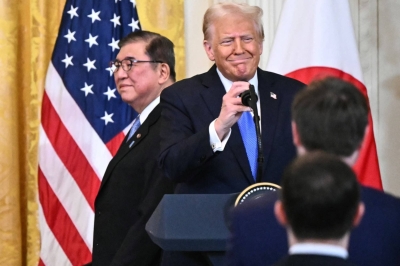Indian Prime Minister Atal Behari Vajpayee has just concluded a historic weeklong visit to China. A meeting of the minds between these two countries -- home to one-third of the world's population -- is long overdue. Both India and China, their neighbors and their entire region, will benefit from better relations between Delhi and Beijing. Leaders in both countries are to be applauded for focusing on the long-term interests and concerns that unite their two nations rather than the issues that divide them.
Relations between the two Asian behemoths have been troubled. Although they both shared a nominally socialist orientation, the two governments clashed when India offered asylum to the Dalai Lama and his followers when they fled Tibet in 1959. They fought a war in 1962 and the border between the two is still contested. Sticking to the dictum that "the enemy of my enemy is my friend," China forged close ties with Pakistan, and helped Islamabad arm its military. The extent of assistance China gave Pakistan as it developed a nuclear bomb is unclear. India's decision to develop its own nuclear arsenal followed the 1962 defeat and China's own nuclear test two years later. When India tested its nuclear device in May 1998, Indian officials said the real driving force was not Pakistan but the long-term threat from China.
Relations improved after those injudicious comments. India's president visited China in May 2000, and two Chinese prime ministers reciprocated in 2001 and 2002. Earlier this year, Mr. George Fernandes traveled to China, the first visit by an Indian defense minister in over a decade. Significantly, Mr. Fernandes is also the man who fingered China for pushing India to go nuclear. Finally, this week Mr. Valpayee made his journey north, the first visit to China by an Indian prime minister in over a decade.

















With your current subscription plan you can comment on stories. However, before writing your first comment, please create a display name in the Profile section of your subscriber account page.